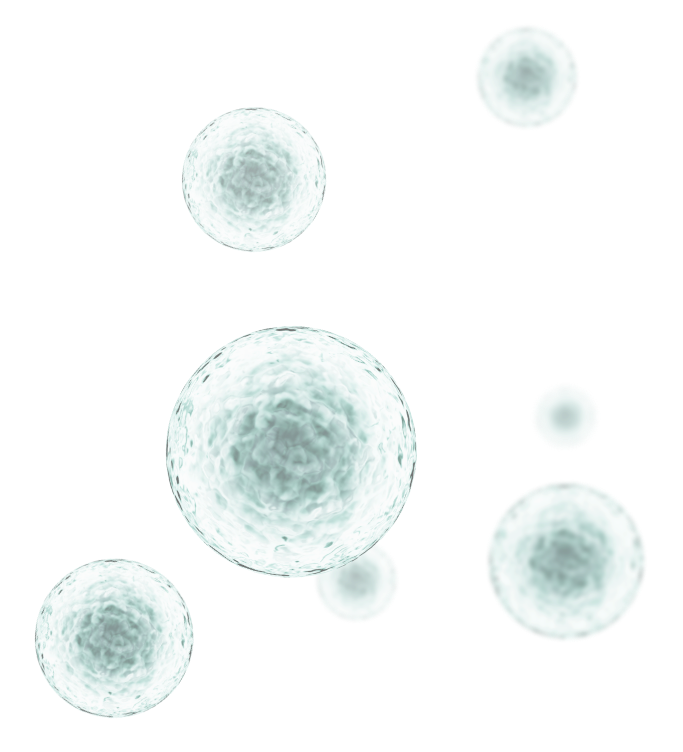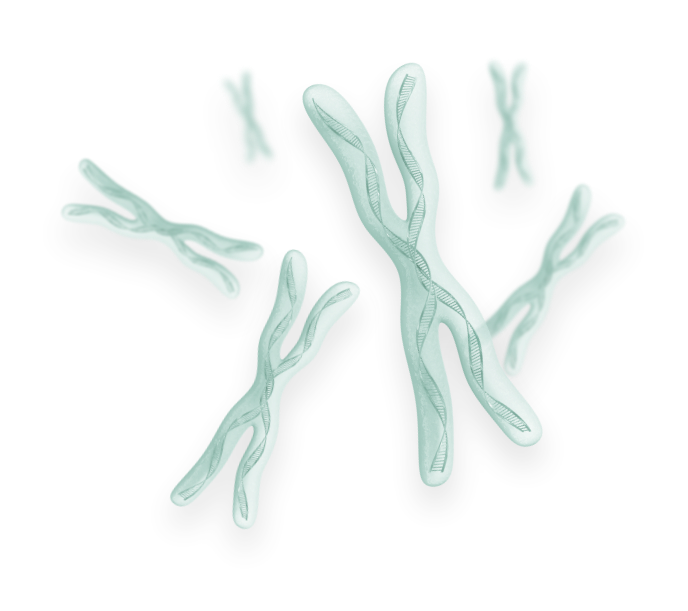Reducing the risk of inherited disease
Reducing the risk of inherited disease
A small number of cells are sampled from embryos, produced using IVF technology, and analysed to predict whether a specific defective gene has been inherited. Juno typically combines more than one advanced method in order to provide highly accurate results.
Most tests are custom designed for individual patients, taking into account their unique genetics. The majority of chromosome abnormalities, responsible for most cases of miscarriage and problems such as Down syndrome, are also detected at no extra cost.
Karyomapping looks at thousands of SNPs on each chromosome. These variations in the DNA are passed on from parents to their embryos. Each copy of a gene is associated with a characteristic group of SNPs, which can be thought of as being like a unique DNA fingerprint for that copy. Juno compares the SNPs in different members of the same family in order to define the pattern of SNPs associated with a mutant gene and the SNP fingerprint that accompanies the normal copy of the gene. Analysis of these patterns in embryo samples allows Juno’s scientists to predict whether the embryo is affected by the inherited condition for which PGT-M was requested.
Autosomal recessive diseases:
‘In this case having only one copy of the altered gene does not mean a person has the disease, just that they are a carrier. To have the condition, both the maternal and paternal copies of the gene must be defective. For recessive disorders, 25% of the offspring will be healthy, 50% will be healthy-carriers and 25% will have the disease.

PGT[M]Seq is for couples who are known to be at risk of transmitting a monogenic disease and wish to reduce the chances of having an affected pregnancy.
In order to design a new PGT[M]Seq method, it is important that the defective gene causing the inherited disorder has been identified and the mutation in the gene has been characterized.


PGT[M]Seq is for couples who are known to be at risk of transmitting a monogenic disease and wish to reduce the chances of having an affected pregnancy.
In order to design a new PGT[M]Seq method, it is important that the defective gene causing the inherited disorder has been identified and the mutation in the gene has been characterized.

A detailed explanation of the PGT[M]Seq method and its requirements is given in the Juno Genetics User Manual. In brief, Juno can begin work on a new PGT[M]Seq test once it has received the following: 1) a genetic report describing the mutation(s) responsible for the disorder for which PGT[M]Seq is being requested; 2) blood samples from the couple requesting PGT[M]Seq (both the man and the woman, even if only one of them carries a mutation); 3) where possible a sample from a child or other close relative who has been tested for the mutation (blood, DNA or saliva); 4) a completed Requisition Form, confirming the request for PGT[M]Seq and providing relevant information concerning the patients. In rare cases, PGT[M]Seq is not technically possible. Additionally, PGT[M]Seq often requires several weeks in order to develop and validate a new test. For these reasons, patients should not begin a cycle until Juno has confirmed that a PGT[M]Seq test has been successfully developed.
The development of a new PGT-M test usually requires 6 weeks starting from the date that Juno receives all of the necessary DNA samples and paperwork, but can take up to 8 weeks in some cases. Once Juno has confirmed that the test is ready, the IVF cycle can begin. The embryos produced can be biopsied and the specimens sent to Juno. PGT[M]Seq results are generally available 9 days after Juno receives the embryo biopsy samples (although can take up to 14 days).
We aim to make working with Juno Genetics as easy as possible. Juno is committed to supporting the clinics it works with, providing guidance at all stages of the PGT process. We are available seven days a week to assist with queries or to provide advice. At Juno we appreciate that different clinics may have unique needs and our policy is one of flexibility, where we adapt to the specific requirements of each clinic. If your clinic already offers PGT in collaboration with another genetics laboratory, then it is likely that very few significant changes, if any, will be necessary. Please contact Juno Genetics and we will be happy to walk you through the enrolment procedure, provide all necessary documentation and answer any questions you might have. If your clinic is new to PGT, Juno can help by providing valuable information and documentation to get you started. Juno can also assist with training and evaluation of procedures, making sure that all elements of the PGT procedure are optimised and working well, prior to the launch of a clinical service. Please contact supportuk@junogenetics.com to begin working with Juno.
